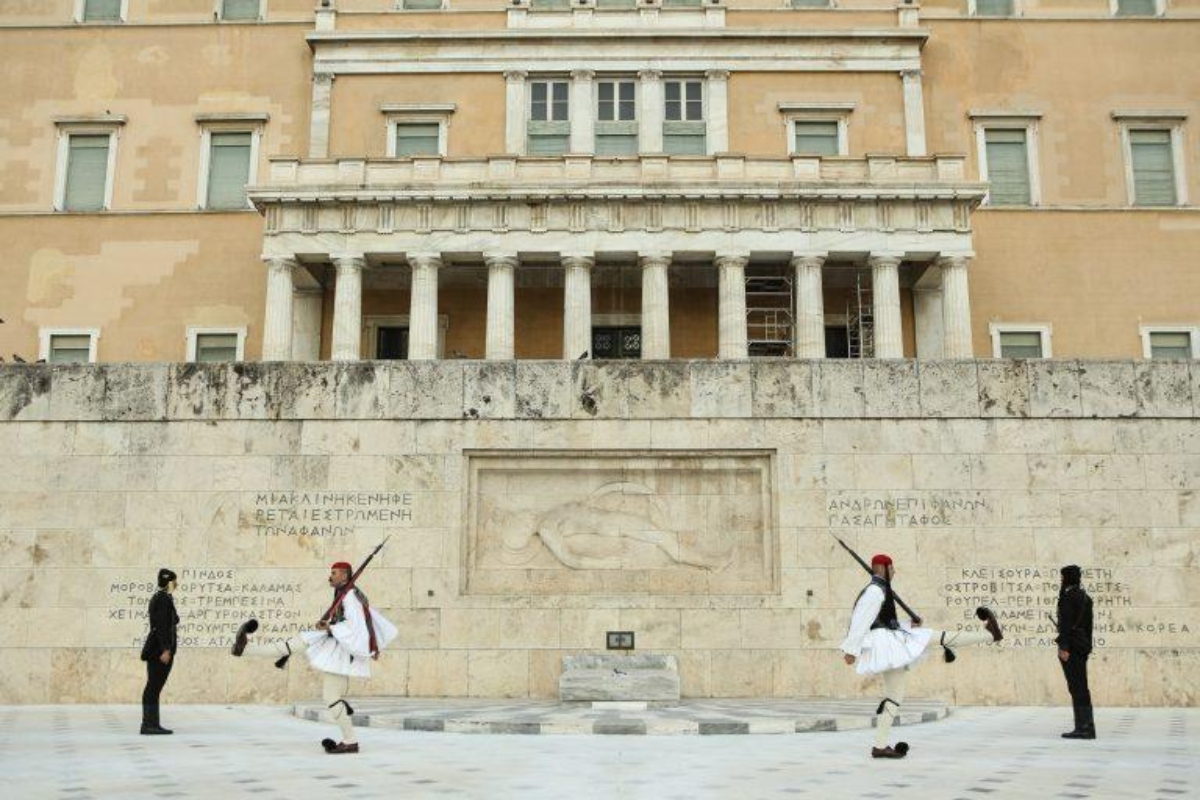The Greek justice system has issued the first conviction under the newly enacted law protecting the Tomb of the Unknown Soldier, following an incident late Friday night in Syntagma Square. Twenty-three members of the anarchist collective Rouvikonas stood trial after unfurling a banner at the monument and were found guilty of violating the law.
The banner read:“Unknown soldiers did not guard the traitors of the people.”
The defendants were arrested on the spot within minutes of the brief protest, held in front of the monument where the Presidential Guard stands at all hours.
9-month sentences with a three-year suspension
The Single-Member Misdemeanor Court of Athens imposed 9-month prison sentences, suspended for three years, on each of the 23 defendants, following the prosecutor’s proposal. The court also accepted the mitigating circumstance of non-base motives, acknowledging that the action was not carried out for personal gain or with intent to damage the monument.
Acquitted of violence and fingerprinting refusal
Beyond the main charge, the defendants faced two additional accusations:
- Violence against public officials,
- Refusal to be fingerprinted.
The court declared them not guilty on both counts, ruling that there was insufficient evidence to support these allegations.
What the defendants said in court
During their testimonies, the members of Rouvikonas insisted that their action was “symbolic, peaceful, and brief.” They stated that the purpose of the banner drop was to express a political message, not to insult the memory of fallen soldiers.
“We went there for a short symbolic protest, without any intention of causing an incident or damage,” they said.
What this landmark decision signifies
This case represents a milestone in the implementation of Greece’s new legal framework regarding the protection of national memorials.
1. First practical use of the new law
The law, introduced to safeguard symbols of national memory from disruptive interventions, had not been tested in court until now. The Rouvikonas case becomes the first legal precedent.
2. Rekindles debate on the limits of protest
The incident brings back an enduring question: Where does political expression end, and where does the desecration of national symbols begin? To some, the act is a disrespectful intrusion. To others, it is a peaceful political demonstration that caused no harm.
3. A balancing act by the judiciary
By acknowledging mitigating circumstances and issuing suspended sentences, the court appears to balance the symbolic significance of the Tomb of the Unknown Soldier with the principle of proportionality in punishment.
4. Establishes a clear precedent
The ruling will likely serve as a reference for future cases involving similar actions, setting boundaries for what constitutes a violation under the new law.
Source: pagenews.gr
